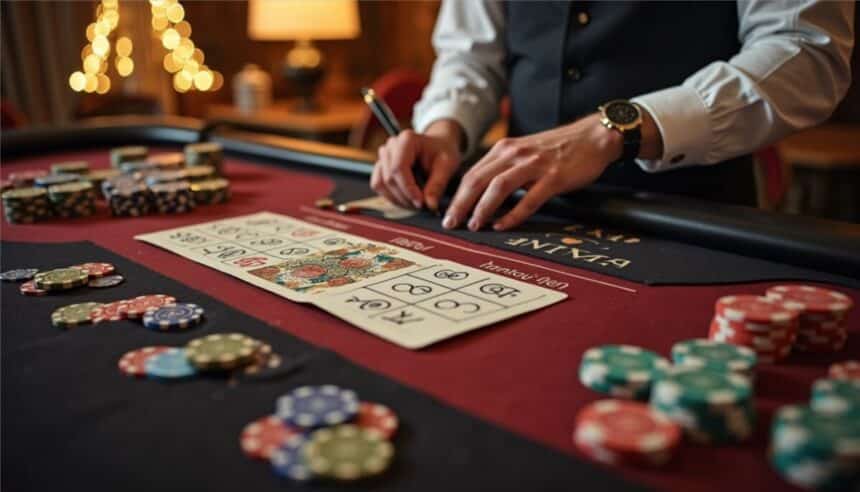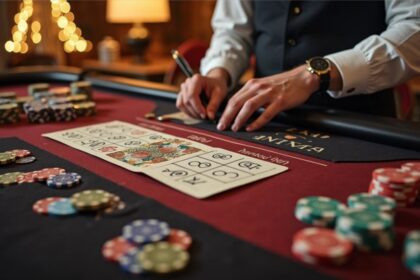Casinos come wrapped in lights, music, and a thick fog of lore. Walk past a row of slot machines and you’ll hear whispers: “It’s hot,” “Don’t change seats,” “Never count your money.” Some of these things are harmless superstition; others are stubborn misunderstandings that cost people time and sometimes money. I’ve listened to enough stories at tables and bar counters to know how real these beliefs feel to folks, even when they’re wrong. Below I pick apart the oddest, most persistent casino myths and explain what’s actually going on.
The “Hot Machine” and “Cold Machine” Myth
People will point to a slot, stroke it, swear it’s due, and then hand you the crank like it’s a family heirloom. The idea: machines get “hot” after a streak of wins or go “cold” after losses.
Here’s the plain truth. Modern slots use random number generators that decide every spin independently. Past outcomes don’t change the odds of the next spin. That means a machine that just paid out doesn’t have a higher chance of doing it again five minutes later.
Do players still believe the opposite? Absolutely. It’s comforting to imagine a pattern where none exists. I get it — humans crave narrative. But betting on a “hot” machine is just that: a bet on a story.
Dealers Can Make Games Go Either Way
A dealer “helping” players win or quietly favor regulars sounds dramatic and—frankly—funny. Dealers are there to run the game, keep the pace, and watch for cheaters. They don’t have the power to alter an honest game’s mathematical edge.
Take blackjack: the dealer follows fixed rules. The outcome is determined by cards and player choices, not charm. In table games where discretion exists, the house still sets the rules; dealers aren’t rogue magicians.
There are rare exceptions where staff cheat, but those are criminal schemes, not a normal part of casino life. Casinos lose their license and reputation if tampering is discovered, so they guard against it fiercely.
Card Counting Is Illegal
People often treat card counting like a criminal act, the gambling equivalent of shoplifting. In reality, card counting is not illegal in many places; it’s a skillful use of observation and memory. What casinos do is respond: they can ask suspected counters to leave, ban them from play, or use countermeasures like shuffling more often.
So yes, you won’t be arrested for counting cards in most jurisdictions, but you might be quietly escorted off the floor. The practical upshot: counting is legal, but casinos don’t have to tolerate it and may refuse to pay out winnings.
Betting More on “Due” Numbers in Roulette Works
Some swear there’s value in tracking which roulette numbers haven’t appeared lately and placing bets accordingly. This is the gambler’s fallacy in a flashy hat. Each spin of a fair roulette wheel is independent. A number that didn’t come up for an hour isn’t any likelier to show on the next spin.
Roulette does have a predictable house edge. Betting systems that chase “due” numbers don’t change the math; they change only how you chase losses.
Casinos Can and Do Rig Machines for Someone Specific
This one is dramatic and a little cinematic. The rumor says casinos will rig a slot or machine to pay out for a particular customer, maybe even to cover a promotional loss. In regulated markets, rigging to favor specific players would be illegal and enormously risky for the operator. Public regulators inspect and certify gaming machines precisely to prevent that kind of tampering and ensure that a machine’s random number generator (RNG) is fair for all players.
Promotions and comps exist, sure, but they’re separate from an individual machine’s random mechanics. If a casino wanted to reward a big player, they’re more likely to offer comps, private events, or cash back — not a stealthy machine tweak.
The “Beginners’ Luck” Trap
Beginners sometimes win their first session, then tell everyone they’re cursed with luck. Others swear novices are favored by the gods. The fact is, early wins happen because in short samples, variance can swing either way. That first win is memorable; the losses that follow are less dramatic. Humans are storytellers — our memory latches onto the surprising moments.
Beginners’ luck is real as a cultural phenomenon, not as a statistical advantage. Treat it like a happy accident, not a strategy.
You Should Never Cash Out at the Table
Some players keep chips on the table as if leaving them there will somehow protect their future luck. Other players insist cashing out is aggressive jinxing. Neither action influences the games. Cashing out is simply a convenience choice: do you want to keep playing or leave with cash? That’s it.
If anything, leaving chips on the table can get you in trouble — dealers are trained to return unattended chips to the bank or hold them briefly. So cash out if you want to be in control of your funds.
The “Lucky Charm” Rituals Actually Help
People bring rabbits’ feet, wear a certain hat, or perform a pre-spin ritual. Those habits give comfort. They can make someone feel focused or confident, and confidence changes how you bet, how long you play, and how quickly you walk away. But the charm itself doesn’t alter the random mechanics of a game.
I’ll be candid: I like a small ritual myself. It’s harmless. Just don’t confuse comfort with causal power.
Comps Make Bad Money Decisions Good
Casinos hand out comps — free drinks, rooms, meals — and some players treat them as a reason to play longer, thinking “I’m practically getting paid.” Comps are real value, but they’re also a carrot designed to keep you in the casino where the house edge will eventually apply.
If you’re chasing comps instead of tracking your losses, you might misread the math. A free dinner is lovely, but it doesn’t offset steady losses at the tables indefinitely.
Online RNGs Are More Honest Than Live Dealers
There’s a myth among some players that online casinos are easier to cheat or less fair. The counter-myth says online RNGs are infallible. Reality sits between: reputable online casinos use audited RNGs and independent testing labs to certify fairness. But not every site is reputable. You need to pick licensed operators and check for third-party audit seals.
Online games can be fair, but due diligence matters. Trust, verify, and if you’re unsure, don’t play there.
Small Bets Are Always Safer
Some players think wagering tiny amounts protects them from the house edge. The truth is more subtle. Smaller bets do lower your short-term volatility, but they don’t change the house edge percentage. Over time, expected losses scale with stake size and time spent. If you want to protect your bankroll, control session length and bet size together; don’t assume small equals safe forever.
Final Thoughts
Superstition and misunderstanding thrive in casinos because the environment encourages stories. Loud noise, flashing lights, and high stakes are an ideal breeding ground for tall tales. They’re part of the atmosphere — sometimes charming, sometimes costly. From where I stand, these myths tell us more about human pattern-seeking than about gambling mechanics.
So, know the math where you can, treat rituals as what they are (comfort), and don’t let lore replace clear thinking about risk. Play for fun, set limits, and be honest with yourself about why you’re at the table or machine.
If you’ve got a weird casino story or an old belief you’ve wrestled with, drop it in the comments. Which myth did you believe at first? Tell us why it felt true. And if you liked this piece, follow us on Facebook, Pinterest or Instagram for more curious takes and debunkings.
Venus’ weird coronae may reveal earth’s ancient secrets. Read more here.









